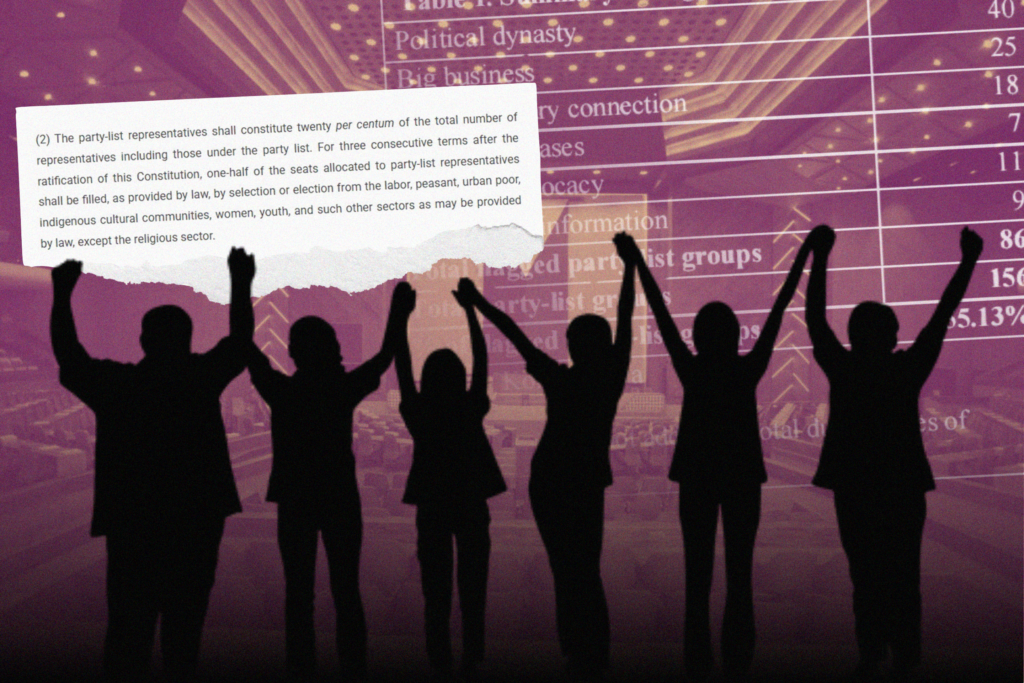Deepening marginalization: ABS-CBN News underscores genuine party-list representation in the congress

CHEERS TO ABS-CBN News for calling public attention to the failure of the party-list system and the need to represent marginalized groups in the House of Representatives.
On February 12, election watchdog Kontra Daya flagged 86 party-list groups that do not actually represent any marginalized sector but are set to field party-list candidates in the 2025 elections.
Kontra Daya reported that representatives of these 86 party-list groups are members of political dynasties, with connections to big businesses, the military and police. Furthermore, these groups are involved in corruption and dubious advocacies.
Kontra Daya’s report questioned the implementation of the party-list system and its genuine representation of marginalized sectors. According to the 1987 Constitution, party-list representatives should come from “labor, peasant, urban poor, indigenous cultural communities, women, youth, and such other sectors.”
All media outlets picked up Kontra Daya’s findings, but reports in general were limited to quoting statements, citing the data of Kontra Daya, and the incapacity of the Commission on Elections’ lack of capacity to examine the eligibility of party-list candidates.
In contrast, ABS-CBN News’ Jonathan de Santos, on February 17, expanded the coverage, presenting the various views about the need to provide representation for the marginalized in Congress.
Hijacking partly-list system
The report highlighted three significant points: the decline of genuine representation in Congress, the need for a provision to prevent abuse of the party-list system, and voters’ critical assessment of candidates.
The report pointed out that the takeover of the party-list system by politicians and traditionally partisan groups has subverted the objective of the party-list law which is to ensure that voices of marginalized groups are heard. Without the genuine representation for these groups, Congress will not prioritize legislation that will provide for the needs of these communities.
According to political campaign strategist Alan German, the party-list system had become “a political tool for some political dynasties to extend their power… it has become a tool for big business to enter politics.”
With more and more relatives of politicians becoming party-list representatives, German described that it has been “misused and abused to make a majority a super majority.”
The good intention set by the party-list law has been easily perverted or hijacked because of the lack of an implementing law, enabling political clans and established politicians to use the law to further broaden the means to serve their vested interests.
As de Santos noted in his report, the Supreme Court in 2013 allowed candidates to run even if they were not from the marginalized sector. Dr. Anthony Lawrence Borja, political scientist, said that these representatives do not have real knowledge of their constituents’ needs and “might end up pursuing their own private interests or working for a fictional, romanticized, or downright inaccurate portrayal of the represented.”
The report has updated the evaluation of the party-list law, serving as a much-needed wake up call for Congress to review how once again, the good intention to provide for unserved needs has fallen by wayside, marginalized like the communities identified to benefit from the party-list law.
Leave a Reply